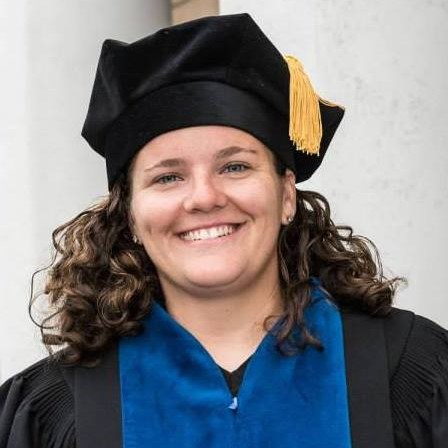MA in Nonprofit Management
Make a difference. Make a living.
The nonprofit sector has grown steadily over the past several decades, employing more than thirteen million individuals in a wide variety of jobs. Pursuing your MA in Nonprofit Management at Antioch University, you’ll learn with others who are bringing positive change to the world while building a career that provides a livable income. And you’ll be doing it at a nonprofit educational institution that has prioritized making a difference for more than 170 years.
You’ll be equipped to work more effectively toward equity and justice, whether serving in human services, environmental sustainability, the arts, culture, education, and more. Led by a team of faculty with decades of leadership experience who are dedicated to the highest level of academic rigor, you’ll build the practical skills, professional network, and knowledge you need to increase your impact, advance your career, and excel at your mission.
This degree is offered by AU Online.
Explore Our Anytime Open House
Get to know our program on your own time through our Anytime Open House videos.
Program Overview
As a Master of Arts in Nonprofit Management student at Antioch University, you’ll develop a distinctive way of looking at leadership in service to the greater good, incorporating theory and practice in a practical way you won’t find in most similar programs. While many nonprofit management programs focus almost exclusively on the minutia of administration without asking the bigger questions, at Antioch you’ll develop both the day-to-day administrative skills and the big-picture thinking you’ll need to advance organizational mission in innovative ways while becoming increasingly clear about your own values and those of the organizations you serve.
You’ll be among a diverse group of students—from those just starting out in the nonprofit world to people who already have leadership positions in agencies and institutions—who work closely together as an adult learning community, in small classes, to learn more collaboratively, think more deeply, and perform more effectively, together.
- GMAT and GRE scores are accepted but not required.
- 100% asynchronous online learning with 24/7 access to your class and resources
- One course at a time – balance work, college, and family – because all aspects of your life matter
- Robust weekly discussions you access and contribute to on days and at times that fit your schedule.
- Faculty are active practitioners and engaged in your learning
- 33-semester credit program
- Classes begin every 7 weeks, with six entry points each year
Program Length
Antioch's MA in Nonprofit Management is a 33-semester-credit program that can be completed in under two years, and most of our students work full-time while going to school. With six entry points each year, you never have to wait long to start your graduate studies.
Additional Program Details
Triple-bottom-line thinking is an approach we’ve been perfecting for over 165 years. Antioch’s first president, Horace Mann, was a nationally known abolitionist and social reformer. Antioch was an early adopter of progressive and innovative education – a philosophy that resonates today.
Antioch University's faculty are active practitioners in their field. They are engaged and present throughout the class. Video, audio, guest speakers, and other tools keep things vibrant and moving forward.
Students engage and interact with each other throughout the courses. Classmates are encouraged to get to know one another, share personal experiences, and network.
- FIN-5100: Financial Analysis for Nonprofit Organizations
- HSA-5113: Organizational Leadership and Governance
- HSA-5210: Program Planning and Evaluation
- MGT-5280: Human Resources Management
- MGT-5340: Leading High Performing Teams Performing Teams
- MKT-5000: Marketing and Communication Strategy
- MNM-5112: Democracy, Capitalism, and the Nonprofit & Voluntary Sector
- MNM-5210: Development and Fundraising


"The mentorship I received from the faculty, along with the individual attention (in small class size), helped me figure out who I was at that time in my life and where I should go with it. A goal of mine was to serve by working in the sector on the executive level, combining all of my years of work experience and my education about nonprofits to both bring me to the next level, and to be a driver for these societal changes we seek. The education and connections I received through the program helped open the door."
Melissa Crandall
Master of Arts in Nonprofit Management 19'
Hear Directly From Our Students
Hear from our students as they answer some of your frequently asked questions.
Why should I choose this program?
Asynchronous, Remote Learning
How do you connect with faculty?
Concentrated Learning: 3-Credit Class in 7 Weeks
Building Bonds: Online Student Community
Is the technology user-friendly?
More Questions
What are the most valuable lessons you have learned?
How did this degree impact my current position?
How do you balance priorities?
What advice do you have for new students?
Meet some of our graduates
Faculty Spotlights

Nicholas Bergan
Adjunct Faculty

Tera McIntosh, PhD
Affiliate Faculty

Robert Watson
Adjunct Faculty

Mary Ann Short, PhD
Associate Dean

Pete Alexander, PhD
Adjunct Faculty

Bob Lazzarini, MBA
Core Faculty

Paul Stillman, PhD
Adjunct Faculty

Kirsten Frey
Affiliate Faculty
Admissions
Admissions Criteria
Antioch University particularly seeks qualified candidates who will contribute to building a student population diverse in gender, ethnicity, age, class, physical abilities, learning styles, sexual orientation, professional backgrounds, religious backgrounds, and community experiences. How to Apply
- Online Application (No Application fee)
- Bachelor’s degree from a regionally accredited college or university. Applicants who have not finished their degree must do so before the first day of their desired start term.
- Current resume.
- GMAT scores are accepted but not required.
- Essay: Please describe your personal and professional goals, why you are interested in this program, and how it will help you achieve your goals. Why is this the right time for you?
- Additional requirements for international students:
- Reading & Writing in English Proficiency Assessment (if applicable) or TOEFL score of 550 “paper-based,” 214 “computer-based,” and 79 “internet-based" or higher.
Please submit all materials to: Antioch University Admissions Office 900 Dayton Street, Yellow Springs, Ohio 45387 –OR– [email protected]. All application materials submitted become part of an applicant’s file and cannot be returned.
Deadlines
| Semester | Application Deadlines | Start Date |
|---|---|---|
| Spring A | December 15 | January 6 |
| Spring B | February 15 | March 3 |
| Summer A 2025 | April 15 | May 5 |
| Summer B 2025 | June 15 | June 30 |
| Fall A 2025 | August 15 | August 25 |
| Fall B 2025 | October 1 | October 20 |
| Please review the Academic Calendar for additional details. | ||
Cost and Aid
Tuition
| Program | Cost |
|---|---|
| Master in Human Services Administration (MHSA) | $634 per semester hour |
| MA in Nonprofit Management | $634 per semester hour |
| Master of Business Administration | $634 per semester hour |
| View the Cost of Attendance Components | |
Financial Aid
Many students finance their education through some form of financial aid. You may not be sure which federal, state, public, and private aid packages – such as loans, scholarships, and grants – are right for you. Our staff is here to help you so you can focus on what’s most important: beginning your academic program.

Start your Antioch Journey
Take your next step - talk to our admissions team to find the right program for you.
